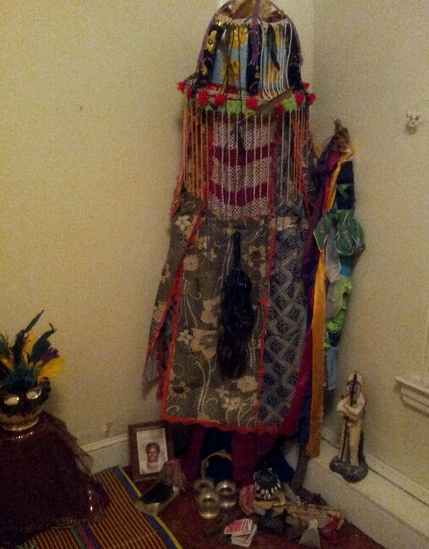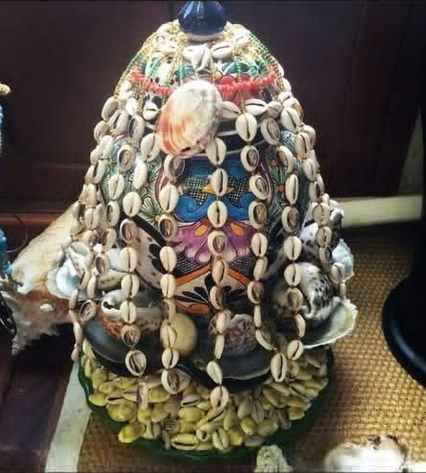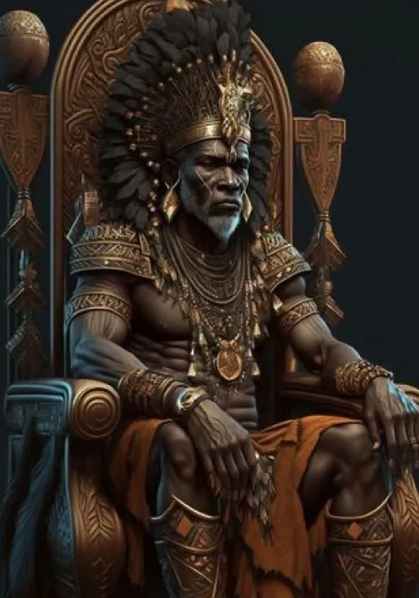
support@yorubalibrary.com
+2348073529208, 07038599574

Egungun represents the collective spirits of the departed ancestors among the Yoruba people. Unlike most Orishas that embody individual divine beings, Egungun is a sacred manifestation of lineage, heritage, and ancestral presence. Yoruba tradition teaches that the ancestors remain spiritually alive, and through the Egungun, they return to the physical realm to bless, guide, warn, and protect the living.
The Egungun deity is venerated through masquerades, festivals, and ritual performances that reaffirm the bond between the living and their forebears. These performances are not mere entertainment but spiritual acts signifying the continuity of life, death, and rebirth in Yoruba cosmology.
Yoruba Belief about Egungun
In Yoruba culture, Egungun is a vital institution that connects generations across time. Ancestors are regarded as intermediaries between humans and Olódùmarè (the Supreme Being). They can influence fortunes, offer protection, and serve as spiritual guardians.
The Yoruba believe that through proper remembrance and rituals, the ancestors ensure prosperity, fertility, health, and communal harmony. However, if neglected, they may withdraw their blessings or even punish descendants.
Egungun festivals are therefore essential to reaffirm respect, gratitude, and alignment with ancestral wisdom.
Characteristics and Attributes of Egungun
• Embodiment of Ancestors:
Egungun is not a singular Orisha but the spiritual representation of an entire lineage of forebears.
• Masquerade Manifestation:
Egungun spirits appear during festivals as masked figures covered in elaborate costumes of cloth layers, raffia, and sacred decorations.
• Voice of the Ancestors:
The Egungun speaks in a distorted voice (called ajeji) to signify that they are not ordinary humans but ancestral spirits.
• Role of Justice:
Egungun enforces morality, discipline, and respect in society, warning against wrongdoing and blessing those who live uprightly.
• Seasonal Appearance:
Egungun does not appear at will but is summoned during specific festivals, funerals, and communal rites.
• Spiritual Authority:
Only initiated families (Alágba Egungun) have the right to perform Egungun rituals, which are passed down through bloodlines.
Functions and Importance of Egungun in Yoruba Society
1. Spiritual Intermediary:
Serves as a bridge between the living and the ancestors.
2. Moral Compass:
Reminds people of proper conduct and punishes social misconduct.
3. Community Bonding:
Egungun festivals unite towns and families, fostering identity and continuity.
4. Blessing and Protection:
Ancestors are invoked to grant fertility, health, and success.
5. Preservation of Culture:
The masquerade, chants, and rituals preserve Yoruba traditions across generations.
Symbols and Worship Practices of Egungun
• Costume (Aso Egungun):
Made of multiple cloth layers, symbolizing the depth and continuity of generations.
• Mask (Awo Egungun):
Conceals identity and represents the transition between the physical and spiritual worlds.
• Whips:
Some Egungun carry whips used symbolically to drive away evil forces.
• Drums and Songs:
Talking drums (bàtá and gángan) are central to calling and communicating with Egungun spirits.
• Sacrifices:
Offerings such as kola nuts, palm oil, goats, or cocks are made to appease the ancestors.
Oriki Egungun (Praise Poetry of Egungun)
This section is dedicated mainly to the Oríkì (praise poetry) of Egungun, where the ancestral spirits are honored and invoked.
Egungun Ajuwon,
Lukuluku gbugbu,
A rago gbale
Egungun kiki egungun,
Togogo,
Oku yi gbe 'ri
Eni ara kan,
Ti nj'ijo awo.
Isoran l'okun nde lagbure,
Igba ti ngo s'oran okun,
Kile m'okun,
So mi l'apa si;
Omo keke mo sa,
Mo mu sewe l'apinni,
Abaja mo bu,
Mo mu sewe l'agbure;
Gbombo mo wa,
Mo mu sewe l'igbori;
Tori igbori mi l'Oyo-mo-ko
Baba aruku, baba aruku
Omo ar'oku r'oja ma ta.
Oku t'a gbe r'oja,
T'a o ta,
O n l'a daso fun,
T'a n pe l'egun
Ilu ilodo,
Omo a'toku jeun
Omo a-t-aiye s'ola
Conclusion
Egungun is more than a festival spectacle; it is a sacred Yoruba institution that sustains the living through ancestral memory and blessings.
Need more? Browse through our Oriki Gallery today, at zero cost.

Learn about Orisha Ajé popular known as Aje Olokun…

Learn about Òrìṣà Ẹ̀là, the Yoruba force of divine…